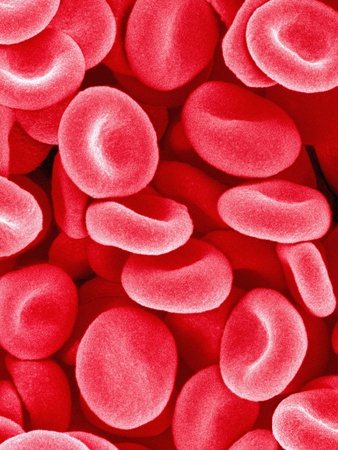From a study by Erken, G, Bor Kucukatay, M, Erken, HA, Kursunluoglu, R, and Genc, O in Med Sci Monit. 2008 Jan;14(1):BR28-33 (online not yet available):
Background: A number of studies have reported physiological effects of music. Different types of music have been found to induce different alterations. Although some physiological and psychological parameters have been demonstrated to be influenced by music, the effect of music on hemorheological parameters such as red blood cell (RBC) deformability and aggregation are unknown. This study aimed at investigating the effects of classical and rock music on hemorheological parameters in rats. Material/Methods: Twenty-eight rats were divided into four groups: the control, noise-applied, and the classical music- and rock music-applied groups. Taped classical or rock music were played repeatedly for 1 hour a day for 2 weeks and 95-dB machine sound was applied to the noise-applied rats during the same period. RBC deformability and aggregation were measured using an ektacytometer. Results: RBC deformability was found to be increased in the classical music group. Exposure to both classical and rock music resulted in a decrement in erythrocyte aggregation, but the decline in RBC aggregation was of a higher degree of significance in the classical music group. [emphasis added] Exposure to noise did not have any effect on the parameters studied. Conclusions: The results of this study indicate that the alterations in hemorheological parameters were more pronounced in the classical music group compared with the rock music group.
Red blood cell deformability sounds bad, but in fact, it is a good property to have, because it means that blood cells can squeeze past each other (think of the difference in damage between two people squeezing past each other, and two cars squeezing past each other). So here we see that music affects us at the cellular level, regardless of the type of music we like, and that yet again, classical music comes out the winner.
I have already discussed blood cell aggregation in Classical Music and Water, at the bottom of the article, including pictures of what aggregation looks like. Basically, clumps are bad, free-floating cells are good, and classical music increased the free-floating cells more than the rock music. In my previous post, I quoted material from the Nobel prize website that clumps of blood cells can be fatal.
How many of you are seriously willing to die rather than change the station on your radio?
